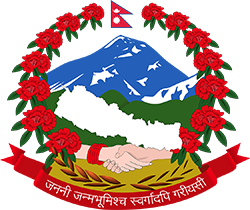
-
10:08:21 AM
- Friday - May 3, 2024
- narayanihospitalbirgunj@gmail.com
नेपाल सरकार
स्वास्थ्य तथा जनसङ्ख्या मन्त्रालय
नारायणी अस्पताल
वीरगन्ज, नेपाल

Orthopedics, also spelled orthopedics, is a medical specialty that focuses on the diagnosis, treatment, and management of conditions and injuries related to the musculoskeletal system. The musculoskeletal system includes bones, joints, muscles, ligaments, tendons, and other connective tissues. Orthopedic doctors, also known as orthopedic surgeons, are medical specialists who are trained to provide both non-surgical and surgical treatments for a wide range of orthopedic conditions. Here are some key aspects of orthopedics:
Orthopedic Conditions: Orthopedic surgeons diagnose and treat various musculoskeletal conditions, including fractures, osteoarthritis, rheumatoid arthritis, sports injuries, back pain, scoliosis, and congenital deformities of the bones and joints.
Joint Replacement: Orthopedic surgeons perform joint replacement surgeries, such as hip replacement and knee replacement, to alleviate pain and improve joint function in patients with severe joint damage.
Arthroscopy: Arthroscopic procedures involve the use of small incisions and a tiny camera (arthroscope) to visualize and treat conditions inside a joint. This minimally invasive approach is used for various joint problems, including repairing torn ligaments and cartilage.
Spinal Surgery: Orthopedic spine surgeons specialize in treating spinal conditions, such as herniated discs, spinal stenosis, and scoliosis. They may perform spinal fusion, laminectomy, or discectomy surgeries to address these issues.
Sports Medicine: Orthopedic sports medicine specialists work with athletes to diagnose and treat sports-related injuries, such as torn ligaments (e.g., ACL tears), tendon injuries, and stress fractures. They often employ both surgical and non-surgical techniques.
Pediatric Orthopedics: Pediatric orthopedic surgeons focus on diagnosing and treating musculoskeletal conditions in children, including congenital disorders and developmental issues like clubfoot and developmental dysplasia of the hip (DDH).
Trauma Surgery: Orthopedic trauma surgeons specialize in treating severe musculoskeletal injuries resulting from accidents, falls, or trauma. This can include complex fractures, dislocations, and injuries to multiple parts of the body.
Orthopedic Oncology: Orthopedic oncologists deal with the diagnosis and treatment of bone and soft tissue tumors, both benign and malignant. Surgery may be necessary to remove tumors or reconstruct affected areas.
Hand Surgery: Hand surgeons, a subspecialty within orthopedics, treat conditions of the hand and upper extremities, including carpal tunnel syndrome, tendon injuries, and congenital hand deformities.
Orthopedic Rehabilitation: Orthopedic rehabilitation involves physical therapy and rehabilitation programs to help patients recover from orthopedic surgeries or injuries and regain strength and mobility.
Orthotics and Prosthetics: Orthopedic specialists may work with orthotists and prosthetists to design and fit orthotic devices (e.g., braces) and prosthetic limbs for patients with musculoskeletal or limb-related challenges.
Orthopedic care often includes a combination of medical, surgical, and rehabilitative approaches to improve patients' quality of life and restore their ability to move and function. Orthopedic surgeons work closely with other healthcare professionals, such as physical therapists and radiologists, to provide comprehensive care for their patients.